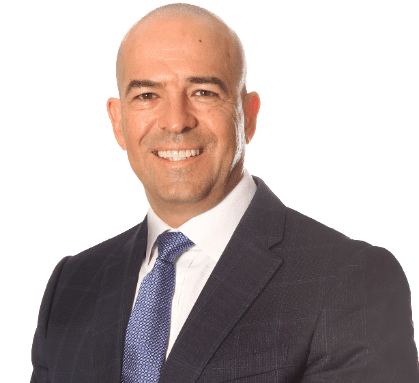Preventing the Rising Threat of Financial Fraud
Corporations and banks have boosted their security infrastructure and employee training to avoid getting hit by financial fraud, including cybercrime, but individuals and families often are less prepared and, as a result, are a softer target for criminals.
“They’re not giving due consideration to the scores of ways they’re vulnerable and fraud can happen,” says Mona Manahi, head of personal CFO services for Geller, an independent multi-family office firm.
Several stats back this up, including a 30% rise in consumer scams reported by the Federal Trade Commission and a rise in mail fraud by criminals getting access to credit cards and checks reported by the U.S. Postal Service this past spring. A UBS survey found 63% of U.S. family offices reported being targeted by cyber threat actors.
The “great wealth transfer” to a younger generation is also putting large amounts of cash into the hands of millennials and Generation Z, “and they tend to be a little bit more lax in their trustworthiness,” Manahi says, citing how much younger people share information on social media and use electronic payment services.
“What’s happening now feels like a big paradigm shift, and people really need to pay attention,” she says. “It’s like a perfect storm.”
But families can protect themselves often with simple steps, such as wiring big amounts of money through credible financial institutions instead of putting a check in the mail. Manahi and Scott Bush, Geller’s chief client officer, detailed a range of fraud-prevention measures recently with Penta.
Avoiding Cyber Threats
The rise of technology in people’s lives has given criminals more sophisticated ways of commiting crimes, enabling them to target wealthier individuals and families.
A decade ago, criminals might have put a skimmer on a gas station credit card machine to glean data from just about anyone. Today, criminals break into household wireless networks to access email and phone communications that tell them where a family spends money, why they spend it, and where they can find pools of capital to tap, Bush says.
“What’s changed is that the more organized, very high-quality criminal networks have started to realize that they get better bang for the buck if they focus on ultra-high-net-worth families,” Bush says.
Most families allow all their personal financial information to be accessed through the same wireless network they use for watching Netflix or checking email, believing it’s safe because the network is password protected.
“What they often don’t think about is when their children give that same password out to that server to their friends so they can use the Wi-Fi or they plug in the gaming console or they allow all of the people that are helping them maintain the house access to the Wi-Fi so that they can plug their phone in when they’re working at the house,” Bush says.
A simple way to avoid a password getting into the wrong hands is to have two networks in the house, one for personal financial information and another for access to wireless services that anyone can use.
Also, despite lots of education on the topic, most people continue to create weak passwords that criminals can easily decipher, especially once they’ve learned the names of family pets and children, or other personal details.
“If you can focus on securing your household and securing how you manage your personal information, there’s a high likelihood that bad guys just will decide to go somewhere else,” Bush says.
Breaking the ‘Fraud Triangle’
Wealthy families often believe they can keep tight control over their finances if fewer people are involved. But that strategy can lead easily to theft that can go undetected for years. This past December, for instance, a 74-year-old Texas woman pleaded guilty to a scheme of embezzling at least US$29 million from a Dallas charitable foundation and other companies owned by a family, according to the U.S. Department of Justice.
Manahi brings up this incident in an article for Geller on how families can lower their risks by breaking “the fraud triangle,” a term coined by a Brigham Young professor Steve Albrecht decades ago to refer to the three elements needed to execute a fraud: motive, opportunity, and rationalization. Families can’t address a criminal’s motive or rationalization, but they can remove the opportunity. That greatly reduces the potential for fraud, Manahi says.
Often, that means not giving a single personal assistant, or bookkeeper in the Dallas case, too much access or authority to your finances. One of the simplest controls families can put in place is “segregation of duties,” she says. For example, don’t allow one person to have authority to set up a vendor for payments, execute on those payments, and then reconcile the movement of cash in a checking account.
“Regardless of what their structure is, [every family] should have a very clear set of protocols related to how capital moves,” Bush adds. There should be double or even triple authentication for cash transfers, and everybody who works with the family should be aware of “who has the right to move capital and where it might move to.”
Families should also create an employee manual that clearly outlines security and safety protocols. “Just letting [employees] know that there is awareness, that security is an issue, and they are accountable for it is a great way of creating an environment that is secure,” he says.
Also, families should put systems and processes in place to consistently track where money is spent, how it’s spent, and how it relates to a predetermined budget. Then you or an employee can flag when things are out of line. The idea is to show that “the family cares and that at any time, activity can be inspected,” Bush says.
Even the most diligent families can let down their guard during the summer months or the winter holidays, particularly when they are traveling to far-away or remote locations, which is not unusual for a wealthy family. “They’ll be on safari and all of a sudden there’s a flurry of activity in their account when they’re not available,” Bush says.
Having formal protocols in place to ensure no single person can move money will help. Any protocols should also include instructions for what to do in case of an unusual transaction.
“Not only segregating the responsibilities during that time, but also educating [employees] on what they should be looking for and reviewing and increasing their responsibility during that time,” Manahi says.
 Copyright 2020, Dow Jones & Company, Inc. All Rights Reserved Worldwide. LEARN MORE
Copyright 2020, Dow Jones & Company, Inc. All Rights Reserved Worldwide. LEARN MORE
Chris Dixon, a partner who led the charge, says he has a ‘very long-term horizon’
Americans now think they need at least $1.25 million for retirement, a 20% increase from a year ago, according to a survey by Northwestern Mutual
Whether you call it charisma, charm or magnetism, some people seem like naturals. Good news: It can be learned.
Great leaders have it. Gen Z has a new word for it. Can the rest of us learn it?
Charisma—or rizz , as current teenage slang has anointed it—can feel like an ephemeral gift some are just born with. The chosen among us network and chitchat, exuding warmth as they effortlessly hold court. Then there’s everyone else, agonising over exclamation points in email drafts and internally replaying that joke they made in the meeting, wondering if it hit.
“Well, this is awkward,” Mike Rizzo, the head of a community for marketing operations professionals, says of rizz being crowned 2023 word of the year by the publisher of the Oxford English Dictionary. It’s so close to his last name, but so far from how he sees himself. He sometimes gets sweaty palms before hosting webinars.
Who could blame us for obsessing over charisma, or lack thereof? It can lubricate social interactions, win us friends, and score promotions . It’s also possible to cultivate, assures Charles Duhigg, the author of a book about people he dubs super communicators.
At its heart, charisma isn’t about some grand performance. It’s a state we elicit in other people, Duhigg says. It’s about fostering connection and making our conversation partners feel they’re the charming—or interesting or funny—ones.
The key is to ask deeper, though not prying, questions that invite meaningful and revealing responses, Duhigg says. And match the other person’s vibes. Maybe they want to talk about emotions, the joy they felt watching their kid graduate from high school last weekend. Or maybe they’re just after straight-up logistics and want you to quickly tell them exactly how the team is going to turn around that presentation by tomorrow.
You might be hired into a company for your skill set, Duhigg says, but your ability to communicate and earn people’s trust propels you up the ladder: “That is leadership.”
Approachable and relatable
In reporting this column, I was surprised to hear many executives and professionals I find breezily confident and pleasantly chatty confess it wasn’t something that came naturally. They had to work on it.
Dave MacLennan , who served as chief executive of agricultural giant Cargill for nearly a decade, started by leaning into a nickname: DMac, first bestowed upon him in a C-suite meeting where half the executives were named Dave.
He liked the informality of it. The further he ascended up the corporate hierarchy, the more he strove to be approachable and relatable.
Employees “need a reason to follow you,” he says. “One of the reasons they’re going to follow you is that they feel they know you.”
He makes a point to remember the details and dates of people’s lives, such as colleagues’ birthdays. After making his acquaintance, in a meeting years ago at The Wall Street Journal’s offices, I was shocked to receive an email from his address months later. Subject line: You , a heading so compelling I still recall it. He went on to say he remembered I was due with my first child any day now and just wanted to say good luck.
“So many people say, ‘Oh, I don’t have a good memory for that,’ ” he says. Prioritise remembering, making notes on your phone if you need, he says.
Now a board member and an executive coach, MacLennan sent hundreds of handwritten notes during his tenure. He’d reach out to midlevel managers who’d just gotten a promotion, or engineers who showed him around meat-processing plants. He’d pen words of thanks or congratulations. And he’d address the envelopes himself.
“Your handwriting is a very personal thing about you,” he says. “Think about it. Twenty seconds. It makes such an impact.”
Everyone’s important
Doling out your charm selectively will backfire, says Carla Harris , a Morgan Stanley executive. She chats up the woman cleaning the office, the receptionist at her doctor’s, the guy waiting alongside her for the elevator.
“Don’t be confused,” she tells young bankers. Executive assistants are often the most powerful people in the building, and you never know how someone can help—or hurt—you down the line.
Harris once spent a year mentoring a junior worker in another department, not expecting anything in return. One day, Harris randomly mentioned she faced an uphill battle in meeting with a new client. Oh!, the 24-year-old said. Turns out, the client was her friend. She made the call right there, setting up Harris for a work win.
In the office, stop staring at your phone, Harris advises, and notice the people around you. Ask for their names. Push yourself to start a conversation with three random people every day.
Charisma for introverts
You can’t will yourself to be a bubbly extrovert, but you can find your own brand of charisma, says Vanessa Van Edwards, a communications trainer and author of a book about charismatic communication.
For introverted clients, she recommends using nonverbal cues. A slow triple nod shows people you’re listening. Placing your hands in the steeple position, together and facing up, denotes that you’re calm and present.
Try coming up with one question you’re known for. Not a canned, hokey ice-breaker, but something casual and simple that reflects your actual interests. One of her clients, a bookish executive struggling with uncomfortable, halting starts to his meetings, began kicking things off by asking “Reading anything good?”
Embracing your stumbles
Charisma starts with confidence. It’s not that captivating people don’t occasionally mispronounce a word or spill their coffee, says Henna Pryor, who wrote a book about embracing awkwardness at work. They just have a faster comeback rate than the rest of us. They call out the stumble instead of trying to hide it, make a small joke, and move on.
Being perfectly polished all the time is not only exhausting, it’s impossible. We know this, which is why appearing flawless can come off as fake. We like people who seem human, Pryor says.
Our most admired colleagues are often the ones who are good at their jobs and can laugh at themselves too, who occasionally trip or flub just like us.
“It creates this little moment of warmth,” she says, “that we actually find almost like a relief.”
Chris Dixon, a partner who led the charge, says he has a ‘very long-term horizon’
Americans now think they need at least $1.25 million for retirement, a 20% increase from a year ago, according to a survey by Northwestern Mutual




















